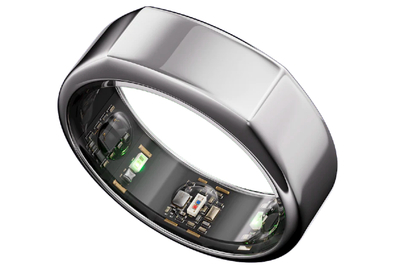Now in its third iteration, the Oura Ring tracks and analyzes a host of metrics, including your heart-rate variability (HRV), blood oxygen rate, body temperature, and sleep duration. It uses this data to give you three daily scores, tallying the quality of your sleep, activity, and “readiness.” It can also determine your chronotype (your body’s natural preferences for sleep or wakefulness), give insight into hormonal factors that can affect your sleep, and (theoretically) alert you when you’re getting sick.
I wore the Oura Ring for six months; it gave me tons of data about myself and helped me pinpoint areas in my sleep and health that I could improve. It’s also more comfortable and discreet to wear than most wristband wearable trackers.
However, the ring costs about $300 (or more, depending on the style and finish), and Oura’s app now requires a roughly $72 yearly subscription to access most of the data and reports. If you just want to track your sleep cycles and get tips, a free (or modestly priced) sleep-tracking app may do the trick. And despite some improvements, the Oura Ring struggles to track workouts, so if that’s important to you, a dedicated fitness tracker might be a better choice.





